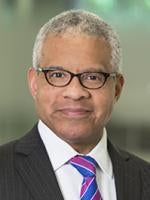There has been no shortage of news this month, so it is understandable that a major presidential proposal garnered relatively little attention at the time. On March 2, the President proposed a sweeping pandemic anti-fraud initiative that is designed to give key oversight bodies additional tools to investigate and prosecute those who defraud the pandemic relief programs that collectively injected trillions into the then-teetering economy to support struggling families, workers, and businesses.
When these relief programs were initiated three major oversight bodies were created to combat pandemic relief-related fraud, a House Select Subcommittee on the Coronavirus Pandemic; a new Office of Inspector General, the Special Inspector General for Pandemic Recovery (or “SIGPR”); and the Pandemic Response Accountability Committee (or “PRAC”), a consortium of existing Offices of Inspectors General whose agencies took part in pandemic relief programs. To complement the work of these bodies, the Department of Justice created COVID-19 Fraud Strike Force Teams, a COVID-19 Fraud Enforcement Task Force, and a “Chief Pandemic Prosecutor” was named.
In the March 2 statement, the President proposed $600 million in additional funding “to provide watchdogs with the resources and time needed to go after the most serious pandemic fraud.” Half this sum would go to add at least ten strike forces “to target criminal syndicates and major fraudulent actors.” These task forces are comprised of federal prosecutors from U.S. Attorneys’ offices and investigative analysts and law enforcement agents from Offices of Inspector General, the FBI, the Secret Service, and other such bodies. Some funds would be used to hire 30-45 more federal prosecutors, and to create a Forfeiture Task Force.
The proposal would also increase the statute of limitations to ten years for “serious, systemic” fraud with respect to pandemic-related unemployment insurance programs. This complements the extension last summer of the statute of limitations for the Paycheck Protection Program and the COVID-19 Economic Injury Disaster Loan Program.
Additionally, at least $300 million would go to the PRAC, of which at least $100 million (each) would be earmarked for the SBA’s and Labor Department’s Offices of Inspector General.
Also worthy of note is the proposal to establish a permanent anti-fraud data analytics capability to oversee the expenditure of government relief funds in response to future disasters and other emergencies. This new body would build on the work of the PRAC’s Pandemic Analytics Center of Excellence (also known as “PACE”), a “cutting-edge analytic platform that provides analytic, audit, and investigative support to the Inspector General community.”
If these and other such proposals are funded by Congress, the Inspector General community will have significantly more resources, and time, to investigate and prosecute serious and systemic pandemic relief-related fraud. One can expect the number and pace of investigations to accelerate accordingly. If recipients have not already instituted measures to ensure that they can prove that pandemic relief funds were spent and accounted for in accordance with applicable laws and regulations, now is the time to do so. And, of course, if such funds have not been spent and accounted for properly, now is the time to brace for investigations that could well uncover it.




 />i
/>i

